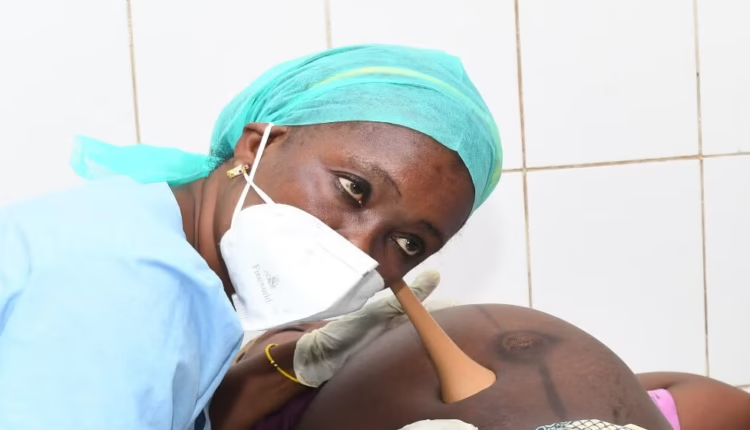The Executive Director of the United Nations Population Fund (UNFPA), Dr. Natalia Kanem, has raised alarm over a global shortfall of nearly one million midwives, warning that the shortage could have devastating consequences, especially in crisis-affected regions.
Kanem made this known in a statement released Monday to commemorate the International Day of the Midwife, observed worldwide on May 5. The 2025 theme, “Midwives: Critical in Every Crisis,” underscores the crucial role midwives play in humanitarian and emergency settings.
According to her, midwives are equipped to deliver up to 90 per cent of essential sexual, reproductive, maternal, and newborn health services, including family planning.
“They also support survivors of gender-based violence, which skyrockets during crises,” Kanem added.
She noted that despite their critical and often life-saving contributions, midwives remain under-recognised—an issue that becomes even more pronounced during emergencies.
“Midwives often put themselves at great risk to reach women and girls in remote or crisis-affected communities,” she said.
Kanem blamed chronic underinvestment in midwifery for widespread problems such as poor infrastructure, inadequate training, lack of essential supplies, and low wages. These, she said, continue to hamper the effectiveness of midwives globally.
“In humanitarian settings, women are twice as likely to die in childbirth,” Kanem warned. “Deploying midwives in both humanitarian and national disaster responses is a cost-effective, life-saving strategy.”
She expressed deep concern over recent significant cuts to humanitarian funding, saying such reductions risk widening existing gaps and having “tragic consequences for women and girls in the world’s most vulnerable regions.”
“Already, midwives are reporting rising death rates among women and newborns in conflict zones and fragile contexts, an ominous sign in places where more than 60 per cent of global maternal deaths occur,” she said.
Kanem emphasized that midwives could prevent up to two-thirds of maternal and newborn deaths. Beyond saving lives, she said they also contribute to lower healthcare costs and a more productive workforce.
“Women and entire societies would be both less vulnerable to crisis and more equipped to recover from it,” she said.
She called on governments and donors to partner with UNFPA and its allies under the Midwifery Accelerator initiative, aimed at boosting financial and programmatic investment in the profession before more lives are lost.
The International Day of the Midwife was established in 1992 by the International Confederation of Midwives to honour and raise awareness about the importance of the midwifery profession.



[…] with a $200 million health sector allocation to close funding gaps following the suspension of USAID […]